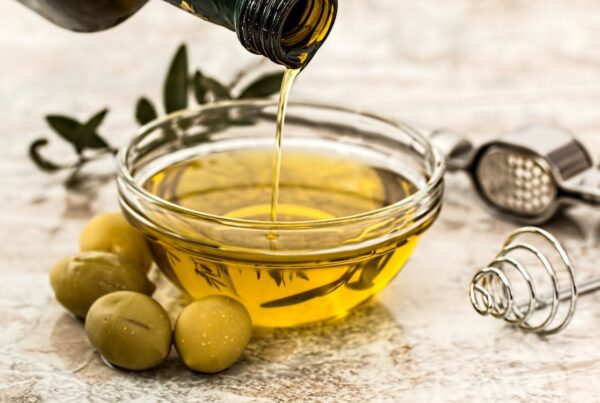The olive tree is one of the world’s oldest cultivated trees. It has a long illuminating history throughout the Middle East and the Mediterranean – outliving empires, war, drought and even fire. Some olive trees date back thousands of years, and those on the Mount of Olives in Jerusalem are over 2000 years old. Historically, the use of this fruit and pressed oil extends from spiritual practices, fuel, cosmetics, and of course, food.
Olive oil is currently one of the hottest growing products on the international packaged food market. It is no surprise that the list of kosher certified olive oil companies is also expanding!
Does Olive Oil Need Kosher Certification?
The answer to this question is not simple. Cold-pressed extra virgin olive oil (EVOO) does not traditionally need kosher certification in its purest form. That said, in today’s bustling market, this is difficult to prove without various certifications. Olive oil companies that produce 100% cold-pressed EVOO often make other olive oil varieties, products, or blends that require kosher certification and can pose issues of shared equipment and cross-contamination without obtaining kosher certification.
When choosing a kosher certification agency for your olive oil, there are several essential points to consider. Here is a simplified short list:
Equipment for Production and Packaging – Pure EVOO is cold-pressed and unrefined. While this type is kosher compliant, many companies formally obtain kosher certification to assure their consumers of the quality and purity of their products. Kosher supervision and certification are required once a production facility uses heat extraction, shared bottling lines, added flavors or additives.
Added Flavors and Ingredients – Flavors and herbs are frequent additions to olive oil. Flavored oil always requires kosher certification.
Fraudulent or Contaminated Oil – Unfortunately, some olive oil producers to practice fraudulent oil mislabeling. Mislabeling affects awareness of ingredients, olive oil variety, origin, and kosher status. While some added products may be acceptable, the kosher certification process is transparent, and all components need oversight and supervision.
Bulk Transport – All containers used for oil transportation require kosher supervision and certification. The vessels need to be cleaned and not used for non-kosher products, making kosher certification an added label signifying the oil’s purity and cleanliness.
Over 600 companies worldwide trust the EarthKosher logo to ensure accepted and affordable kosher certification. Allow us to guide you through our unique seven-step kosher certification process of olive oil. We pride ourselves on excellent customer service and understand the importance of choosing the best certifications for your small to mid-sized company.






